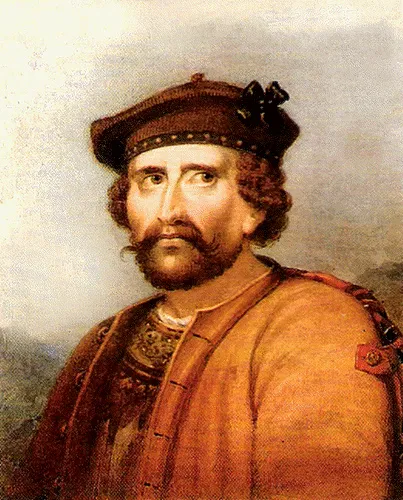
Birth Year: 1670
Death Year: 1736
Nationality: Italian
Profession: Composer
1736 – Antonio Caldara, Italian composer (b. 1670)
In the bustling heart of Venice, where the echoes of operatic arias filled the air and composers thrived under the vibrant cultural tapestry of the Baroque period, a prodigious talent emerged: Antonio Caldara. Born in 1670, Caldara was destined to leave an indelible mark on music history. However, as he stepped into adulthood, it was not merely his talent but also his keen understanding of the musical landscape that set him apart from his contemporaries.
By his early twenties, Caldara had established himself as a formidable force in composition. His journey took him from Venice's illustrious theaters to prestigious courts across Europe. Ironically, while he composed some of the most beautiful operas and sacred music known to man music that would be performed for decades his name would often linger in obscurity when compared to giants like Vivaldi or Handel.
Yet it was during these formative years that Caldara honed his craft. Perhaps one pivotal moment came when he took up a position at the court of Duke Ferdinand Maria of Bavaria in Munich around 1700. This opportunity opened doors; it was here that he could experiment with various styles and forms away from Venice's constraints. The Bavarian court craved innovation; they sought out new musical expressions and Caldara was more than ready to deliver.
Caldara’s style reflected this artistic evolution: blending intricate counterpoint with soaring melodies that resonated deeply with audiences. In 1705, he composed 'La conversione di un peccatore,' a work which exemplified his ability to convey emotion through music a quality many would argue makes him a precursor to later dramatic styles found in opera seria.
However, despite this acclaim in Munich and beyond, societal shifts began to influence even great composers like Caldara. The early 18th century saw changes not just musically but politically across Europe; patrons were seeking different sounds that aligned with burgeoning nationalism and changing tastes influenced by increasing public performance venues rather than exclusive court patronage.
This transitional era could have easily stifled many artists but not Caldara! In fact, it propelled him into new realms of creativity! Moving back towards Italy in 1715 led him towards several posts including one at St Mark's Basilica in Venice a role steeped both in prestige and challenge given its historical significance within Venetian music tradition.
Caldara’s compositions became increasingly revered during this period; notably emerging works such as 'L'Adelaide di Borgogna' demonstrated his mastery over operatic form and dramatic narrative structure elements crucial for engaging audiences who desired both entertainment and storytelling woven through their music! It’s intriguing how these developments mirror today’s multimedia storytelling approaches where narratives unfold across various platforms!
In 1736 the year marking his departure from this world Caldara left behind an impressive catalog boasting over three hundred works ranging from operas to oratorios among others! While celebrated posthumously primarily within academic circles today many might argue he deserved broader recognition akin to what we grant other Baroque luminaries...
The paradox remains: despite being somewhat overshadowed during much of subsequent history by contemporaries who perhaps played more prominently on international stages at their peaks , there exists an undeniable beauty encapsulated within each note penned by Antonio Caldero’s hand an essence arguably timeless!




